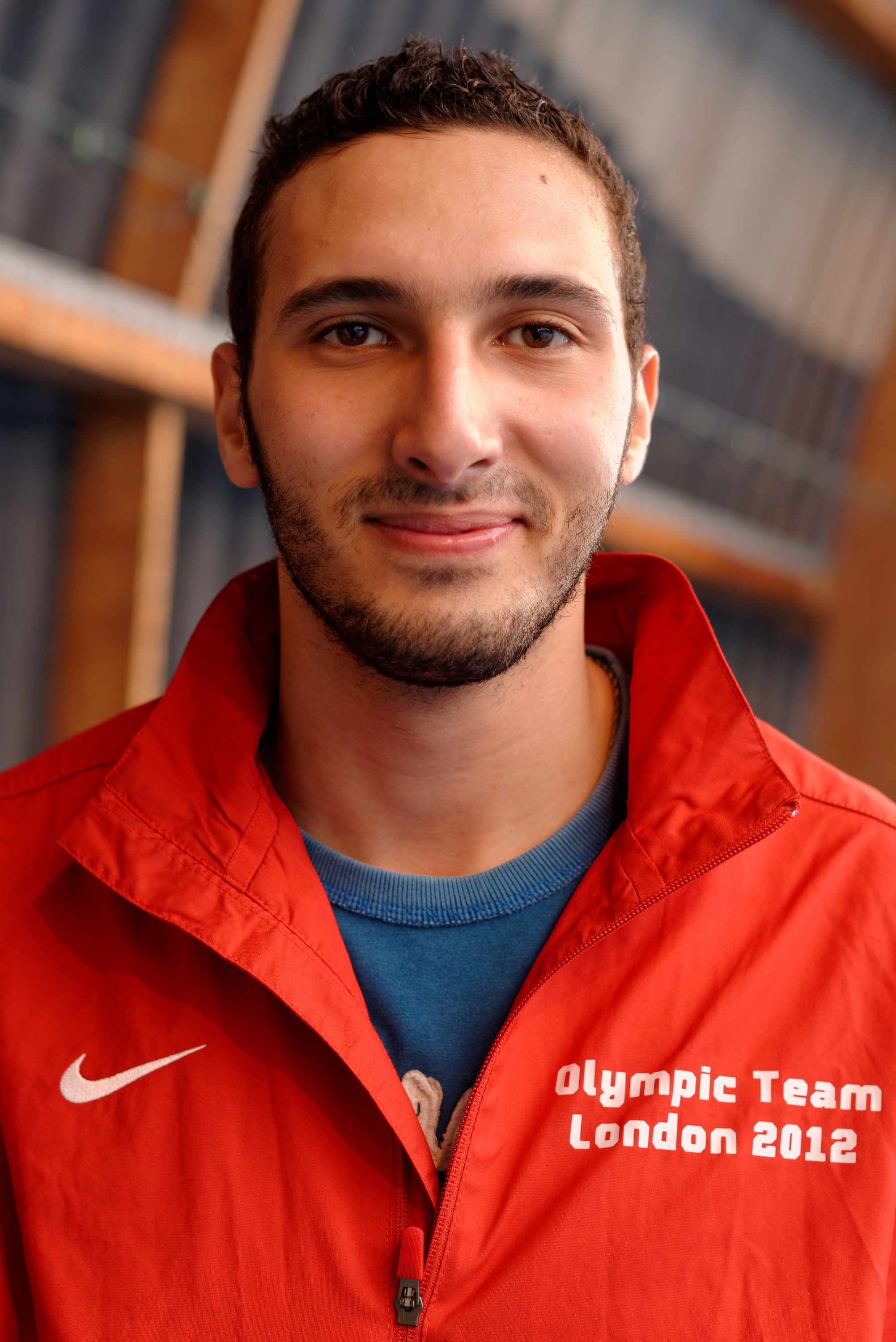1. Early Life
Alaaeldin Abouelkassem's early life saw him develop from a young age in Egypt, setting the stage for his athletic career.
1.1. Birth and Background
Alaaeldin Abouelkassem was born on 25 November 1990 in Sétif, Algeria. His father is Egyptian, and his mother is Algerian. At the age of four, he moved to Egypt, where he was raised in the city of Alexandria. He stands at 6.2 ft (1.88 m) and weighs 181 lb (82 kg).
1.2. Education and Early Sports Activities
Abouelkassem initially engaged in other sports during his childhood, including swimming and karate. At the age of eight, he began his fencing training at the Al-Selah Al-Sakandry club in Alexandria. Despite early successes in the sport, he faced challenges balancing his burgeoning fencing career with his academic pursuits. Upon entering the Arab Academy for Science, Technology and Maritime Transport to study engineering, the demands of the program made it difficult for him to continue fencing. However, he was later rediscovered by his former coach, Mohamed El-Sayed, who recognized his talent and nominated him to join the national team, allowing him to resume his athletic path.
2. Fencing Career
Abouelkassem's fencing career spans both junior and senior international competitions, marked by significant achievements that culminated in an Olympic medal.
2.1. Junior Career
Abouelkassem's international fencing career officially began in 2008. In that year, he secured a gold medal in the foil event at the African Junior Championships. He also earned a bronze medal at the World Junior Fencing Championships held in Italy and achieved a third-place finish at the Junior Fencing World Cup. His success continued into 2009, where he again secured a third-place finish at the Junior Fencing World Cup. A year later, in 2010, he went on to win a gold medal at the World Junior Fencing Championships.
2.2. Senior Career and Major Competitions
Abouelkassem transitioned to the senior international level in 2011. He earned his first senior World Cup medal, a bronze, at the Fleuret de St-Petersbourg. Later the same year, he dominated the 2011 Pan Arab Games in Doha, securing gold medals in both the individual and team foil events. His coach, as of 2013, was Paul Kantorsky of Poland.
2.2.1. 2012 London Olympics
Abouelkassem qualified for the 2012 Summer Olympics in London and entered the individual foil event as the seventh seed. In the round of 32, he decisively defeated American fencer Miles Chamley-Watson with a score of 15-10. He continued his strong performance in the round of 16, overcoming Peter Joppich of Germany, a four-time world champion, with another 15-10 victory. In the quarterfinals, he faced Andrea Cassarà of Italy, the reigning world champion from the previous year, and again prevailed with a 15-10 score.
Advancing to the semifinals, Abouelkassem defeated Choi Byung-Chul of South Korea 15-12, making him the first African fencer to reach an Olympic final piste. In the gold medal match, he competed against Lei Sheng of China, a key member of China's two-time world champion team. Abouelkassem held a lead until the middle of the third round but ultimately lost the bout 13-15. Despite the defeat, the silver medal he earned was a monumental achievement, marking the first time an African nation had won an Olympic medal in fencing. Abouelkassem also participated in the team foil event at the London Olympics, where the Egyptian team was eliminated in the opening round by the British team, with a score of 45-33.

2.2.2. Other Major Competitions
Following his Olympic success, Abouelkassem continued to compete at major international events. In 2013, he secured a bronze medal in the individual foil event at the 2013 Mediterranean Games in Mersin, Turkey. At the 2015 African Games in Brazzaville, he claimed two gold medals in the men's individual and team foil events. He further solidified his dominance in African fencing by winning two more gold medals at the 2019 African Games in Rabat, in both individual and team foil. Most recently, in 2024, he earned a gold medal in the team foil event and a bronze medal in the individual foil at the 2024 African Fencing Championships in Casablanca.
3. Legacy and Impact
Alaaeldin Abouelkassem's achievements have left a profound and positive mark on the sport of fencing, particularly for African athletes and the development of the sport on the continent. His journey exemplifies dedication and has served as a powerful source of inspiration.
3.1. Historic Achievements
Abouelkassem's silver medal at the 2012 London Olympics represents a historic milestone, not just for Egypt but for the entire African continent. It was the first time an African nation had ever won an Olympic medal in fencing, shattering previous barriers and demonstrating that African athletes can compete and succeed at the highest levels of the sport. This achievement garnered significant recognition and brought international attention to the potential of fencing in Africa. His perseverance and breakthrough performance are highlighted as a testament to the idea that with sustained effort, underrepresented regions can achieve global recognition in specialized sports.
3.2. Influence on African Fencing
The impact of Abouelkassem's success extends far beyond his individual medals. His Olympic silver medal has served as a catalyst for the development and growth of fencing across Africa. By proving that an African fencer could stand on the Olympic podium, he inspired countless young athletes in Egypt and other African countries to take up the sport and pursue their dreams with greater conviction. His accomplishments are seen as a vital step in fostering greater investment, training opportunities, and competitive infrastructure for fencing within the continent, promoting social progress through athletic development and opening new pathways for aspiring fencers. His legacy underscores the importance of representation and the profound ripple effect that individual success can have on an entire region's athletic landscape.